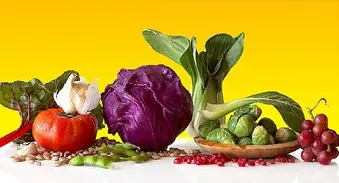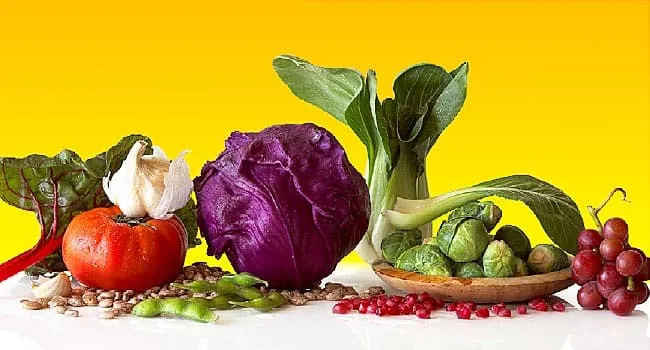Quiz: Are You a ‘Super Foods’ Superhero?


Question 1/14
What are super foods?
- Foods full of nutrients
- FDA-approved foods
- Foods that fight cancer
- Organic foods
Question 2/14
You should eat at least five servings of super foods every day.
- True
- False
Question 3/14
What's the healthiest part of an egg?
- Yolk
- White
- Yolk and white
- Neither; eggs aren't that healthy
Question 4/14
Which fish has the healthiest fats?
- Cod
- Flounder
- King mackerel
- Salmon
Question 5/14
Which nuts have healthy fats, fiber, and protein?
- Almonds
- Peanuts
- Walnuts
- All of the above
Question 6/14
What do blueberries have over strawberries?
- More antioxidants
- More vitamin C
- More folate
- More fiber
Question 7/14
Which potato has more vitamin A?
- Russet potato
- Sweet potato
- Yukon gold potato
Question 8/14
What can oatmeal help control?
- Cholesterol levels
- Blood sugar levels
- Body weight
- All of the above
Question 9/14
Beans belong to which food group?
- Protein group (meat, poultry, fish)
- Vegetable group
- Both groups
Question 10/14
Which kind of tea cuts your chance of getting cancer?
- Green tea
- Black tea
- Both green and black tea
Question 11/14
What's good about Greek-style yogurt?
- It has more calcium
- It has more protein
- It has more healthy fat
Question 12/14
What's a good sign a food has lots of nutrients?
- Deep color
- Weighs a lot
- Is raw, not cooked
Question 13/14
Super foods are usually lower in calories than other foods.
- True
- False
Question 14/14
What should we all eat more of?
- Sodium
- Fiber
- Protein

